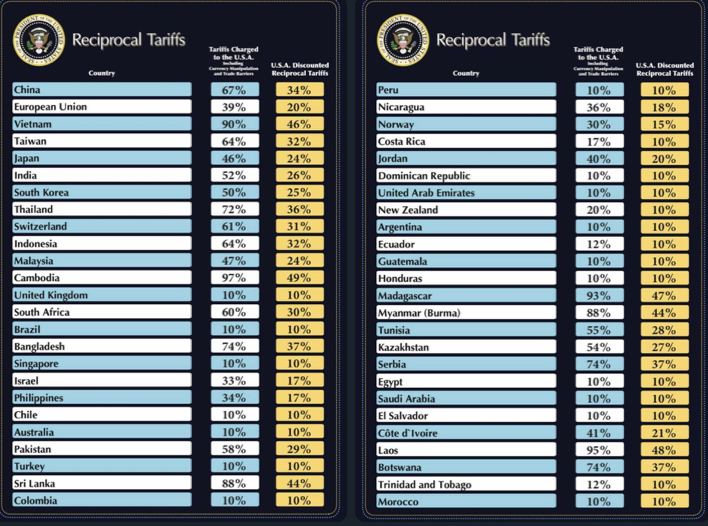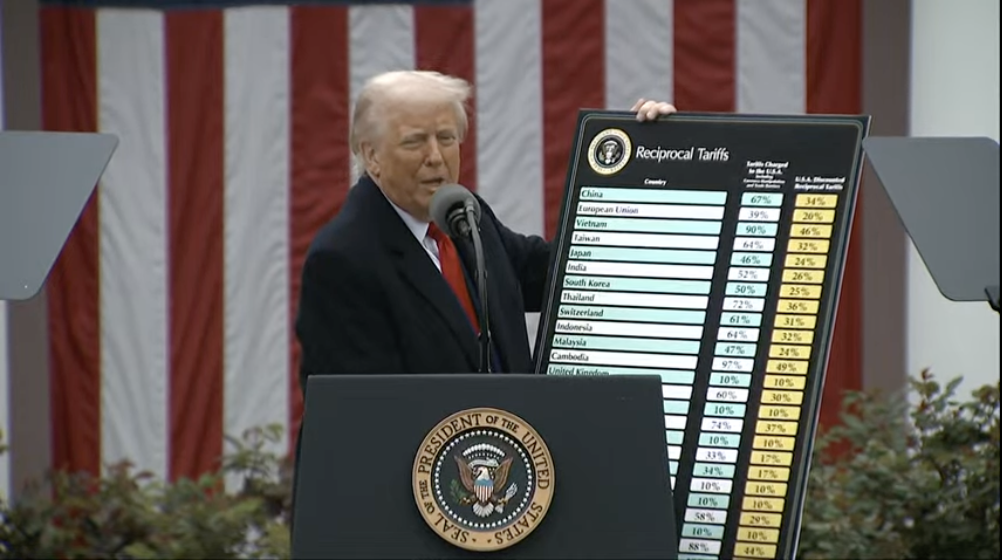The President of the United States enacted an executive order that introduces reciprocal tariffs on trade partners and establishes a 10% baseline tariff on all imports from every country.
According to the President, the reciprocal tariffs will be roughly half of the tariffs that other countries impose on American exports. For instance, since China currently has a 67% tariff on U.S. imports, the reciprocal tariff on Chinese goods will be set at 34%. Additionally, a standard 25% tariff on all automobile imports was announced.
The President claimed during a press conference that these tariffs would lead the nation back to the economic prosperity experienced in earlier centuries:
“From 1789 to 1913, we were a nation supported by tariffs. The United States was proportionately the wealthiest it has ever been. So affluent, in fact, that in the 1880s, a commission was formed to figure out what to do with the significant amounts of money being collected.”
“Then, in 1913, for reasons unexplained, they instituted the income tax so that the burden would shift from foreign countries to American citizens,” the President remarked.

Detailed breakdown of reciprocal tariffs by country.
The President framed the tariffs as a means of economic protectionism, suggesting a return to 19th-century economic policies, which he believes could potentially replace the income tax.
Related: Bitcoin surge to $88.5K overwhelms bears as spot volumes increase — Will a tariff conflict dampen the momentum?
President proposes to eliminate federal income tax in favor of tariff revenues
While campaigning in October 2024, the President suggested abolishing the Internal Revenue Service (IRS) and financing the federal government solely through trade tariffs.
As per estimates from accounting automation firm Dancing Numbers, this plan could save individual taxpayers between $134,809 and $325,561 over their lifetimes.

The President speaks to reporters about reciprocal trade tariffs at the April 2 press conference.
The higher end of the projected savings assumes that other wage-related taxes at the state and local levels are also eliminated.
Commerce Secretary Howard Lutnick, who took office in February, has also expressed support for replacing the IRS with what he terms the “External Revenue Service.”
Lutnick stated that the government struggles to balance its budget while continuously imposing more demands on citizens each year. He emphasized that tariffs would safeguard American workers and bolster the national economy.
Magazine: Elon Musk’s initiative to govern using blockchain confronts significant hurdles
